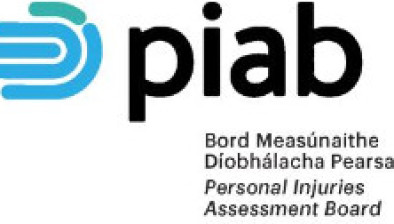High Court: Test for post-accident discovery of medical records does not require an expert opinion

Killian Flood BL
The High Court has granted an order for post-accident discovery of a plaintiff’s medical records in a personal injuries action and reaffirmed the position that post-accident discovery may be granted in line with the usual rules of discovery.

About this case:
- Citation:[2021] IEHC 104
- Judgment:
- Court:High Court
- Judge:Mr Justice Garrett Simons
In making the order, the court clarified the decision in Power v. Tesco Ireland Ltd [2016] IEHC 390, which was previously thought to preclude post-accident discovery without a supporting opinion from a medical expert.
Mr Justice Garrett Simons held that there was no evidential rule that post-accident discovery could not be ordered without a supporting medical opinion. As such, the court held that it had the discretion to award post-accident discovery if the categories sought were relevant and necessary.
The court ordered eight years of pre-accident discovery and three months post-accident discovery in light of the complex medical history of the plaintiff.
Background
The plaintiff claimed to have suffered injuries when a car driven by his wife (the defendant) skidded on black ice and landed in a ditch. The car was turned on its side. The plaintiff was taken to hospital for injuries. In the personal injuries summons, the plaintiff claimed to have suffered injuries to his shoulders, chest, back and abdomen. It was also claimed that the plaintiff suffered progressive pain to his hip following the accident and subsequently underwent a hip replacement.
The summons revealed that the plaintiff had a complex medical history. He suffered from Parkinson’s disease and previously had prostate cancer. The treatment for the cancer had softened his bones. He also had a hernia repaired seven years prior to the accident and had a supra pubic catheter inserted at the time of the accident.
The defence proceeded as an assessment of damage. The defendant served a notice for particulars seeking to confirm that the hip replacement did not result from the accident. The defendant also sought confirmation that the plaintiff did not receive treatment at hospital for his hip in the aftermath of the accident.
In response, the plaintiff said that the car accident was a “contributing/precipitating factor” to the hip replacement and that the plaintiff experienced pain shortly after the accident. It was said that the plaintiff was admitted to hospital two months after the accident.
The defendant issued a motion seeking eight years of pre-accident medical records and three months of post-accident medical records. The plaintiff objected to the temporal period of pre-accident records, claiming that five years’ discovery was appropriate. The plaintiff also claimed that the defendant’s affidavit for discovery did not disclose an opinion from a medical expert that the plaintiff’s post-accident records were necessary.
High Court
The motion was heard by the court last Monday and judgment was delivered on Friday. The court noted that the defendant’s medical expert report contained in the grounding affidavit stated that there was insufficient evidence that the plaintiff suffered a hip fracture. The report also said that further investigations of the plaintiff were not necessary.
Counsel for the plaintiff relied on the Power v. Tesco judgment to resist the motion for post-accident discovery. Specifically, it was said that the decision in Power v. Tesco required the defendant to produce a medical report which stated that further discovery was necessary in order to assess the plaintiff before post-accident discovery could be ordered. It was submitted that this was not done in this case.
The court rejected this submission, saying that the plaintiff’s argument “read too much into the judgment.” Quoting directly from the decision, the court held that “the judgment goes no further than saying that a defendant must be able to point to an “evidential indicator” which suggests that the plaintiff’s prior medical history may be relevant.” Further it was noted that the Power ruling did not appear to draw any distinction in principle between pre- and post-accident discovery.
Mr Justice Simons also referred to the recent Court of Appeal decision in Micks-Wallace (A Minor) v. Dunne [2020] IECA 282, which emphasised that the relevance and necessity of a document was for the court to decide and not an expert.
As such, the court said it was satisfied that three months of post-accident discovery was fair. It was apparent from the pleadings that the extent to which the accident caused the hip replacement would be a central issue in the case. Further, it did not appear that there was any complaint regarding the plaintiff’s hip in the initial weeks after the accident. “It is reasonable to assume that discovery of the post-accident medical records will assist in demonstrating which complaints were related to the accident and which related to other pre-existing medical issues,” the court said.
The court also granted eight years’ discovery of pre-accident medical records. The judge said that this longer period was appropriate to account for the complex medical history of the plaintiff.
Conclusion
The court granted the defendant’s application for discovery.










